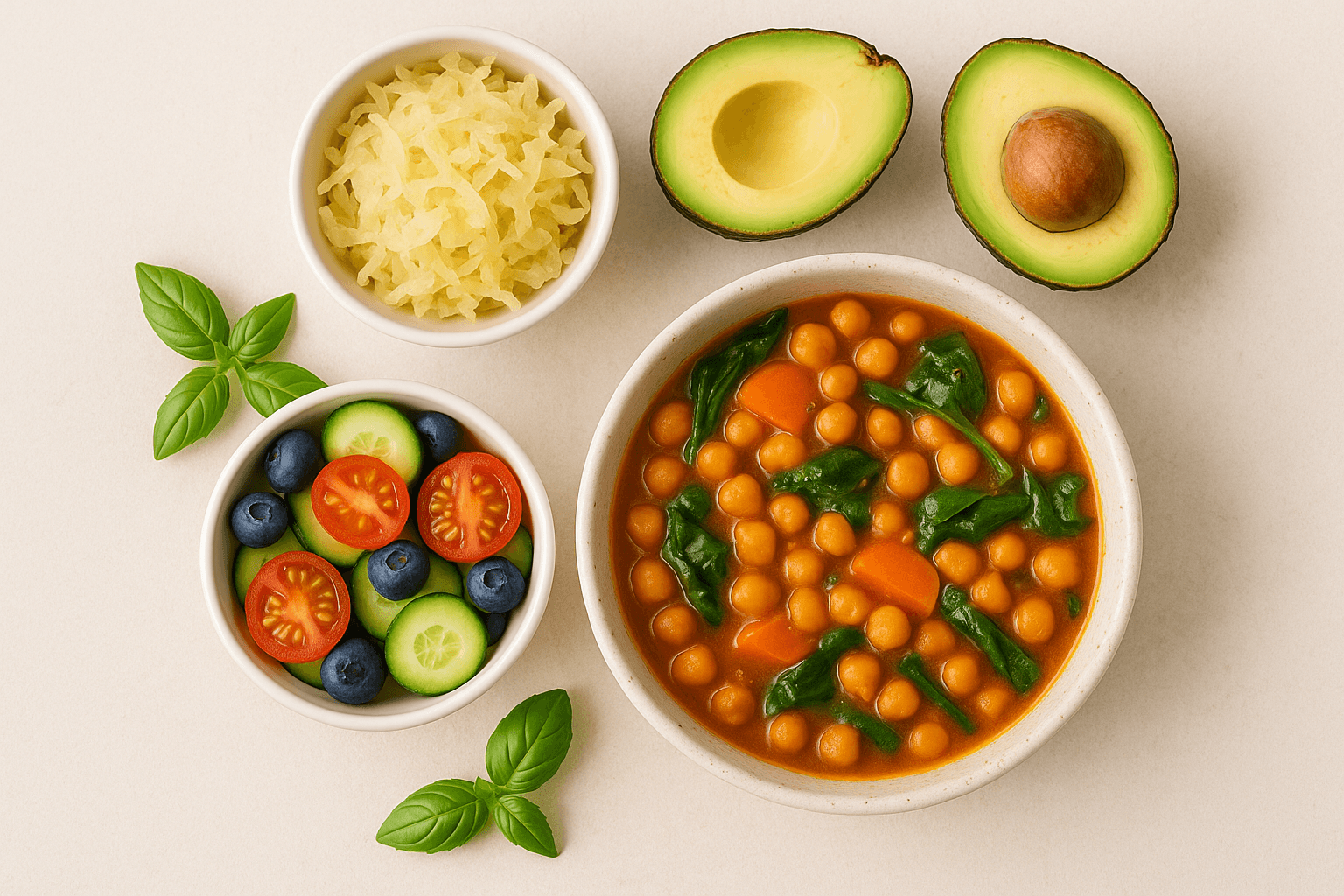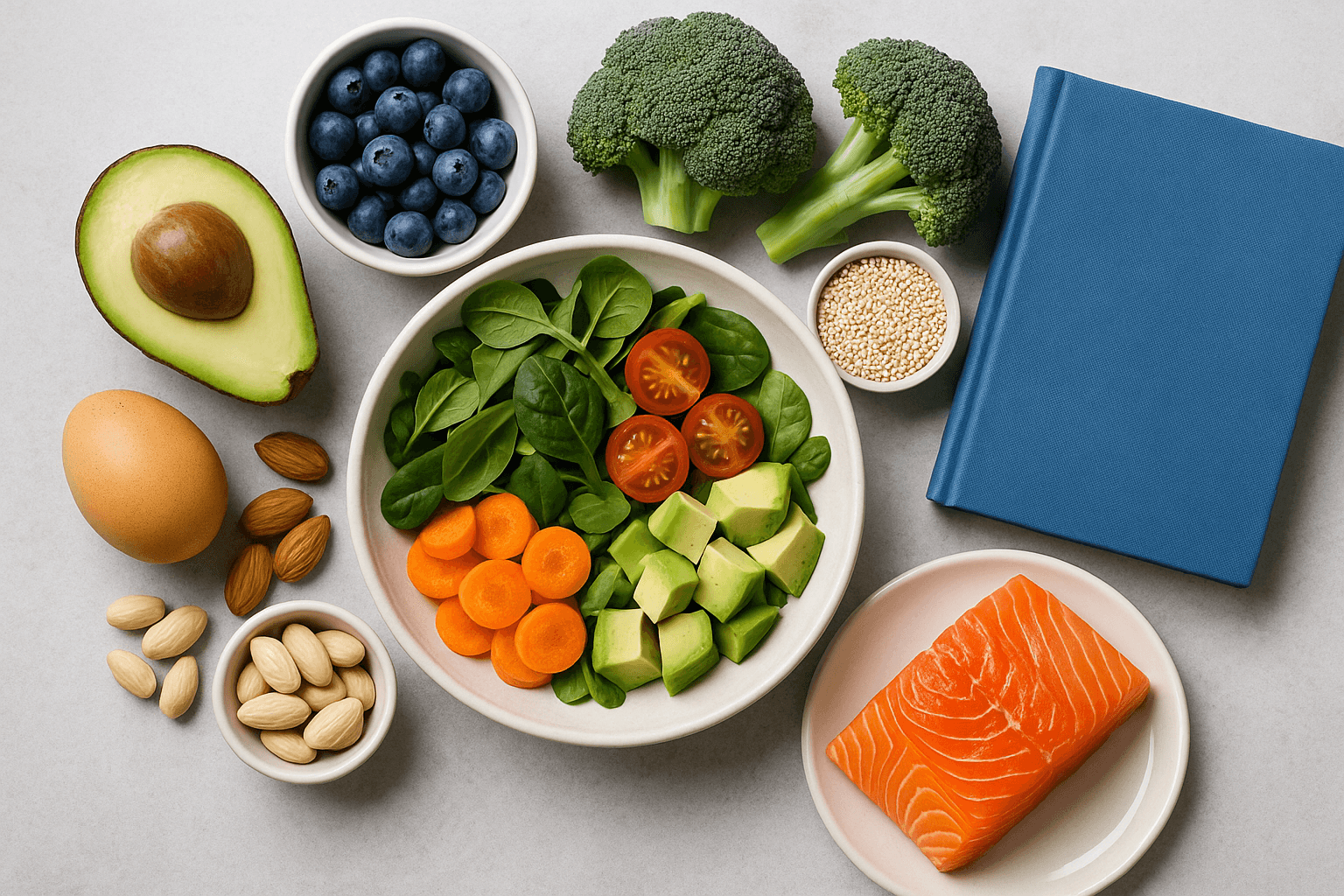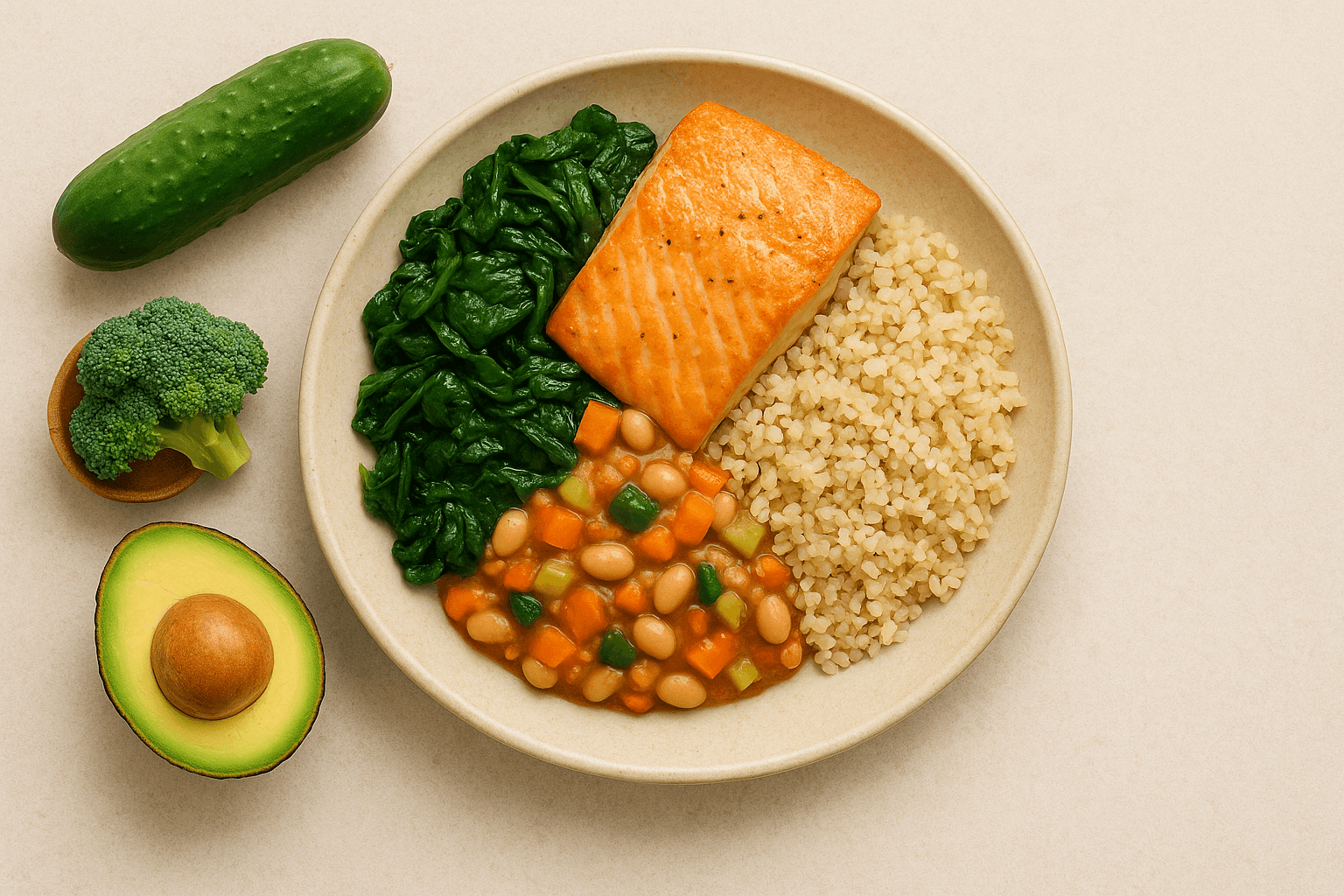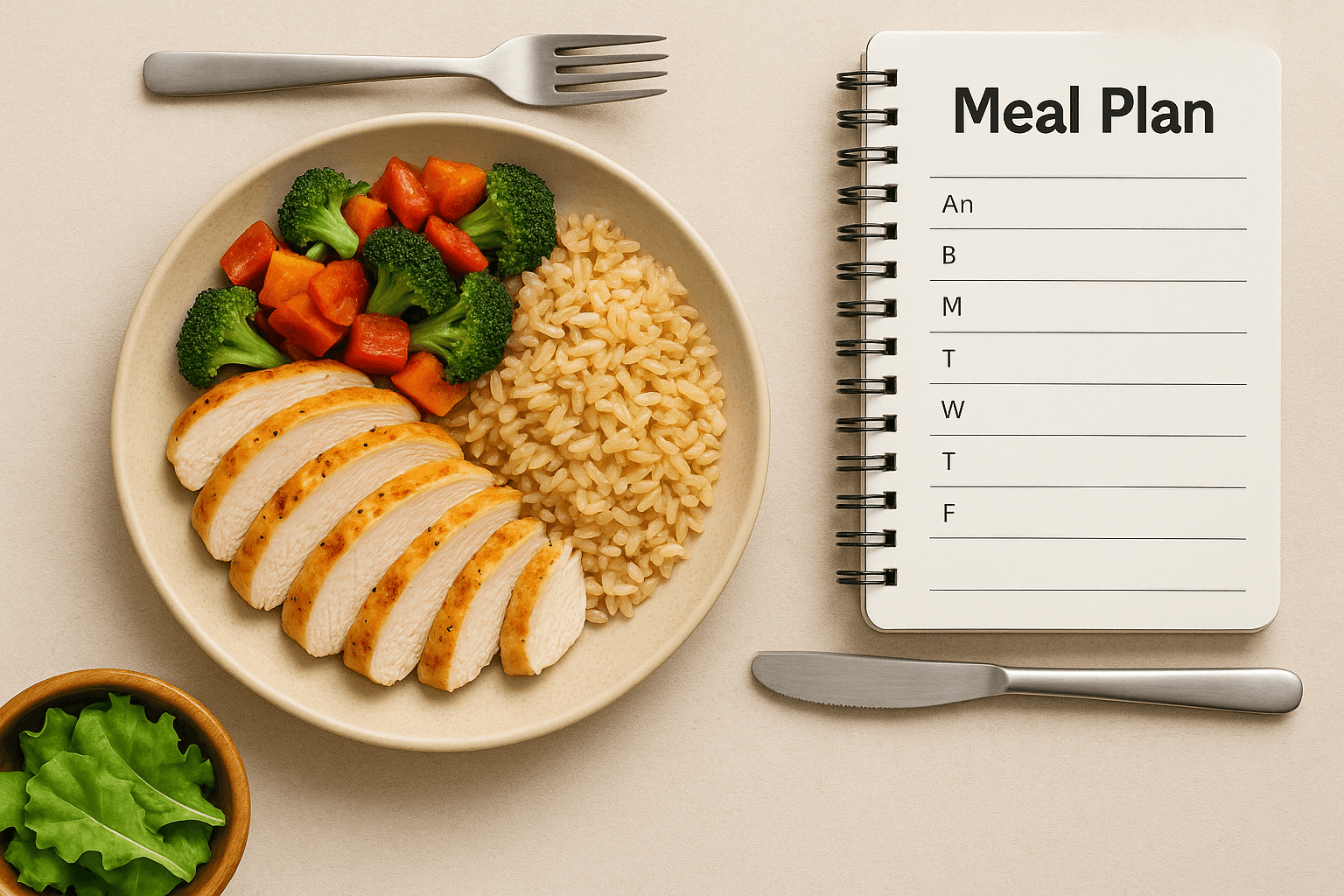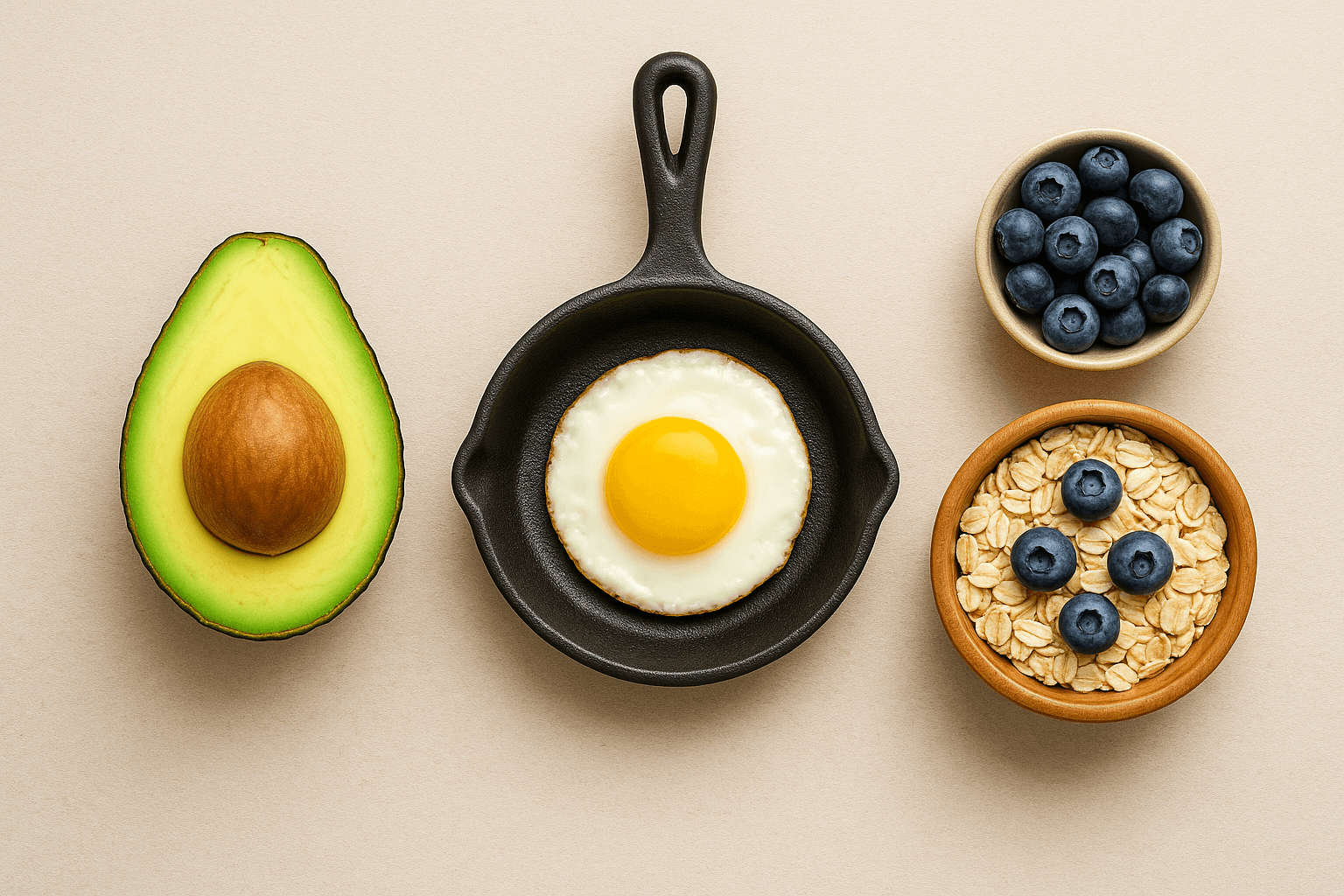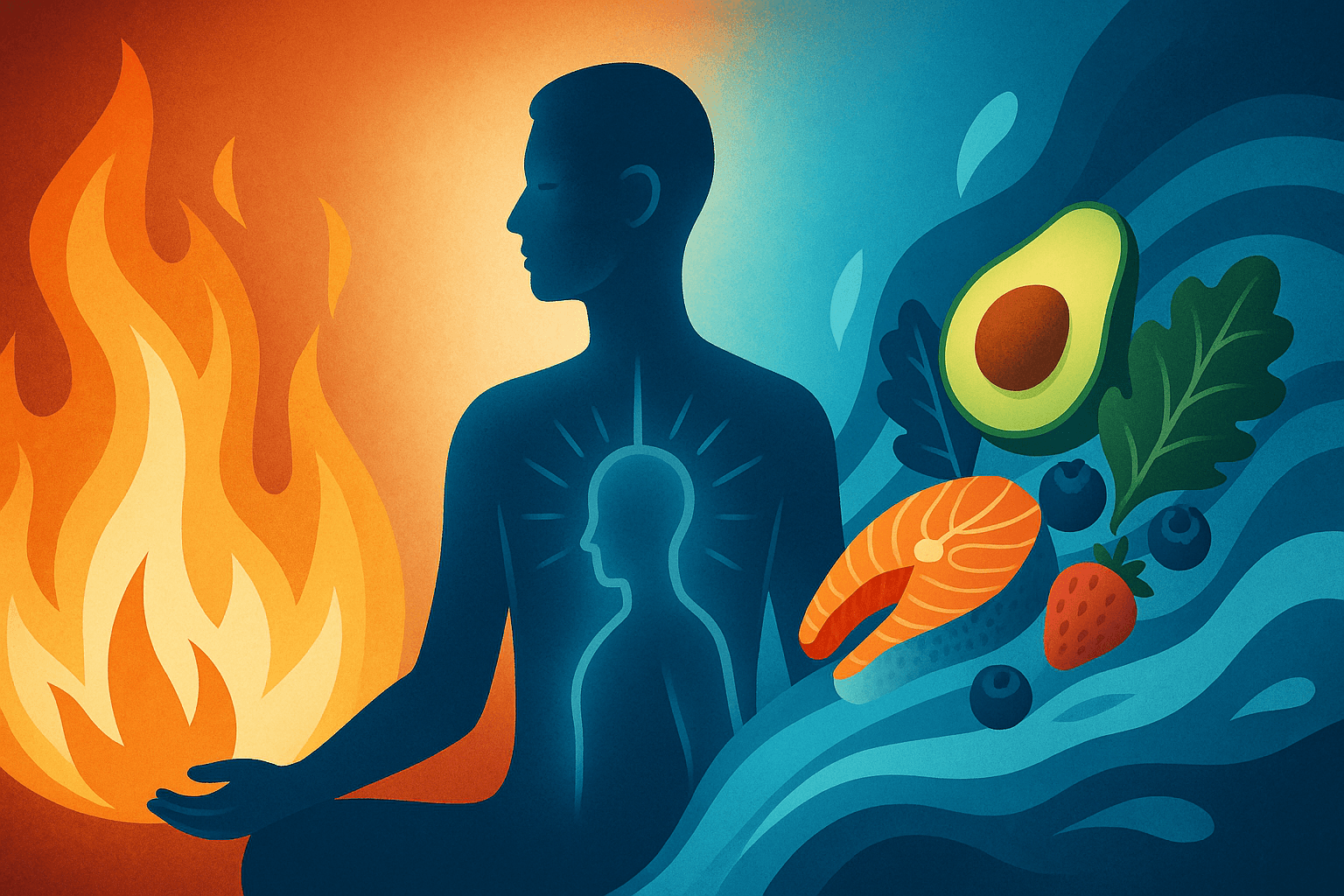INTUITIVE EATING: HOW LISTENING TO YOUR BODY CAN TRANSFORM HEALTHY EATING FOREVER
Published on July 29, 2025

Nutritional counsel is accompanied by a litany of rules, measurements and warnings: “Don’t eat after 7 p.m.,” “Never skip breakfast,” “Cut out carbs,” “Eat clean,” “Everything in moderation.” But let’s be real — have you ever read a set of rules that left you feeling really relaxed around food or super at-home in your own body? The rule-based approach fuels guilt, confusion and a never-ending sense of failure for so many of us. The more we hold on, the farther it feels we are from ease, pleasure and trust.
But what if healthy eating felt easy and intuitive and even joyous, and was completely connected to who we are as individuals? That is the promise and practice of intuitive eating — a gentle revolution that feels all the more necessary in a world that increasingly feels marked by chaos and repair. Instead of resisting cravings or denying hunger, intuitive eating asks you to be present, open, and feed yourself in a way that helps you and supports your needs, likes, and rhythms. It’s about learning to make peace with food — and, just as important, with yourself.
What Is Intuitive Eating?
At a basic level, intuitive eating is an evidence-based approach created by dietitians Evelyn Tribole and Elyse Resch, which is based on ten principles that liberate you from the constant diet-cycle and cultivate a healthier relationship with food, without restriction, judgment or shame. It’s a simple, revolutionary foundation: your body is not the enemy. When you learn to trust your body’s wisdom, to honor your hunger and fullness, and to select foods that are appealing to your palate and support your health, eating can be a source of energy, comfort and joy—and not stress or shame.
This isn’t a free for all, or an excuse to just throw nutrition out the window, but rather a practice of mindful, caring listening. You pay attention to what foods that really make you feel satisfied, and feel like nutrients, and how your body feels after you eat them, and what helps you thrive. Really, at a certain point food no longer scares or seduces you, and eating is simply one more way you look after yourself. That’s why intuitive eating isn’t a fad, but a life skill — a way of eating that is designed to allow you to be more in tune with the way you were born to eat.
Why Intuitive Eating Matters
Heals Your Relationship With Food:
Decades of yo-yo dieting can make eating feel like a war zone, a daily exam you might “fail.” Intuitive eating allows you to escape the cycle of deprivation, bingeing, shame and guilt. You remember that food isn’t used as a reward or a punishment; it’s a fun and natural part of life. You no longer fear your appetite, accepting it as a wise and reliable guide. This is a new relationship of peace and sanity, and lets you enjoy meals without being haunted by judgment.
Supports Physical and Mental Health:
The result is that intuitive eaters typically have better markers of physical health — such as higher levels of good cholesterol and more stable blood sugar levels — than chronic dieters, as well as lower rates of emotional and binge eating. With the struggles against yourself in the background, stress goes down, body image improves, emotional well-being goes up. And the psychological liberation of giving up food rules can be just as transformative as the physical ones.
Promotes Real Satisfaction:
How many times have you “ate healthy” and were never satisfied – only to go raid the pantry later? The idea of satisfaction — not just fullness, but real pleasure — is central to the concept of intuitive eating as a role of health. The more you take pleasure in your food, honor cravings and allow yourself pleasure, the less you require to feel satisfied. Food is a friend, not a foe.
Builds Body Respect:
Our culture throws at us unrealistic body ideals, so it’s not a leap to feel “not enough.” Intuitive eating: No longer focusing on a look and instead honoring what your actual, living, current body wants. You treat yourself with respect—exercising for fun, eating for fuel, giving birth to the size that is how your body naturally feels most comfortable in the world. This respect has a value to nurturance, belonging, and confidence on its own scale.
10 Principles of Intuitive Eating (Expanded)
Reject the Diet Mentality:
Liberate yourself from the myth of “one last diet.” Know that deprivation equals frustration, cravings and shame. Seriously consider that lasting health comes not from outside rules, but from inside wisdom.
Honor Your Hunger:
Hunger is what your body tells you when it is in need of nourishment —not something you need to fight back against. Get to know the early signs, like irritability or poor focus, and act fast. Consistently feeding yourself staves off “primal hunger” and overeating.
Make Peace With Food:
When you make certain foods “forbidden fruits” (or forbidden fruit juices); you only increase the temptation. When you allow all of the foods on your plate without judging yourself for it, you remove the power of forbidden cravings and the gate is now open to balanced, non-chaotic eating!
Challenge the Food Police:
The “food police” is that harsh voice in your head that tells you not to eat dessert or to have a salad instead of fries. Notice and question these voices: Are they serving you, or making eating more difficult?
Feel Your Fullness:
Right after you eat, listen to what your body is telling you. Do you still like the sound? Is satisfaction growing or fading? And stop when you are pleasantly full, knowing that you can eat again later. This trust grows with practice.
Discover the Satisfaction Factor:
Eating should delight your senses. Opt for a spread that is delicious and invites an appealing environment — sitting down, taking time, breaking out the real plates, or adding music or company. The more satisfying your meals, the less likely you are to crave “treats” after.
Eat Your Feelings Without Stuffing Them:
Food is so much more reactive because it’s the way we’re nurtured as infants. Create a self-care toolbox: call a friend, journal, take a walk, rest. Acknowledge how you’re feeling and respond with kindness, and understand that eating is only one form of self-care.
Respect Your Body:
Give up the fantasy that only one particular weight or shape is “good enough.” Accept your genetic blueprint, wear clothes that make you feel good and move in ways that make you feel alive and energized.
Movement—Feel the Difference:
Exercise is not a punishment for eating or a chore to solely “earn” food. Pick movement that feels joyful and invigorating — dance, yoga, hiking, or just stretching at home. The aim is how you feel, not how many calories you burn.
Honor Your Health—Gentle Nutrition:
Nutrition makes a difference, but it’s not about being perfect. With time, intuitive eaters tend to naturally find the foods that help them feel energized, satisfied and nourished, with the understanding that occasional indulgence is a part of living a healthy and happy life.
How to Begin Practicing Intuitive Eating
Slow Down and Tune In:
Take a breath before you eat. Scan your body—are you hungry? What textures or flavors are calling to you? Eat at a table, minimize distractions and make eating the only thing you’re doing for a few minutes. This provides your body an opportunity to communicate and be listened to.
Release “Good” and “Bad” Labels:
Pay attention to your reactions of guilt and pride after eating certain kinds of food. Remember: One meal does not make or break your health. Eventually you’ll learn flexibility and kindness — to oneself and others — are the true well-being that lasts longer than any list of which foods to eat and which to avoid.
Honor Cravings Without Guilt:
Craving chocolate or fries? Give yourself permission to eat them slowly and enjoy their flavor. Notice how you feel afterward. When you finally stop banning foods from your life, you start craving a smorgasbord of options, not just treats.
Notice Fullness and Satisfaction:
About halfway through your meal, put your fork and knife down and ask yourself, “Do I still like this? Am I satisfied?” By giving yourself permission to stop when you’re full or have more when you’re hungry. This is about respecting your body, not reading from a script.
Respond to Emotions with Compassion:
When you’re under stress, feeling sad, or just plain bored, stop before you hit the pantry. Ask, “What do I truly need?” Perhaps that’s a walk, a nap, a call with a friend, or just time to feel your feelings. If you are eating for comfort, release the blame and reflect with kindness.
Typical Difficulties and Solutions
Fear of Losing Control:
Many worry that surrendering the rules would lead to eating “junk food” all day. But as trust increases, most people find that their cravings naturally settle out and that they actually start to crave a mix of fun foods and nourishing meals.
Body Image Struggles:
Intuitive eating may feel scary, especially if you've tied your self-worth to your weight or shape. Concentrate on being grateful about what your body can do and if need be, seek support through communities or professionals. With time, self-acceptance grows.
Old Diet Habits Die Hard:
Years worth of food rules don’t just disappear overnight. Be patient. Each time you do so, you’re building new, healthier habits and mind-sets.
Intuitive Eating and Health: The Evidence-based Details
Emerging research suggests that intuitive eating results in positive metabolic measures, better cholesterol levels, better blood sugar levels, more stable and healthier body weights, and better psychological health. Intuitive eaters are also less susceptible to binging or emotional eating, and more likely to maintain exercising and other healthy practices over time. The major change is more than just what’s on your plate — it’s in your feeling of freedom, joy and trust.
A Sample Day: Eating Intuitively
Breakfast:
You wake up and you can feel you’re hungry. Maybe you’re in the mood for oatmeal with walnuts and berries, or toast with avocado. You are a mindful eater, stopping when you are satisfied.
Mid-Morning Snack:
Then you start to feel a light hunger — perhaps some yogurt with fruit, or perhaps just a cup of tea seems to make sense.
Lunch:
You listen to what’s going to satisfy — maybe a grain bowl with greens, beans and a zingy dressing, or a warming soup and crusty bread. You eat slowly without rushing, and check in with your body throughout.
Afternoon:
You are exhausted after a long meeting. You’re after something comforting — maybe a square of chocolate, a handful of nuts, some veggies dipped in hummus.
Dinner:
Desperate for warmth and fullness, you prepare a simple stir-fry, or pasta, or tacos, and eat until your body whispers you’ve had enough.
Evening:
If hunger does arise before bedtime, try having a banana, small cookie or warm drink.
With time, intuitive eating is a process of ebb and flow — checking in, listening, selecting with thought and letting go of judgment.
How Intuitive Eating Can Show Support for Families and Kids
Intuitive eating is a gift we can give our children. Offer foods this way, rather than pressured or bribed, and kids stay tuned in to their own hunger and fullness signals. Family meals are an opportunity to connect, share and explore — not a battleground for bites on one hand and clean plates on the other. Modeling relaxed, happy eating as a parent raises kids who grow up to trust themselves and their food.
May celebrations and holidays feature one’s favorite dishes and treats, thereby demonstrating that food is a culture and a pleasure. The best lesson for children is that eating well is about listening, sharing and enjoying together — not about limitation or fear.
Final Thoughts: Returning to Your Senses
Intuitive eating is not a point of arrival — it’s a lifelong practice of returning, over and over again, to your own wisdom. Because every time you pause, listen and choose with kindness, you’re strengthening a better, more peaceful relationship with food and with yourself. The most nourishing way to eat is not clear from a book or an app — it sprouts from your own body, your daily requirements and pleasures and your real life.
Be an invitation to self-trust, freedom and vibrant health. The next meal you eat, remember: you are the leading expert on your own body. So listen up, eat up, and let each delicious bite bring you closer to the well-being you deserve.



